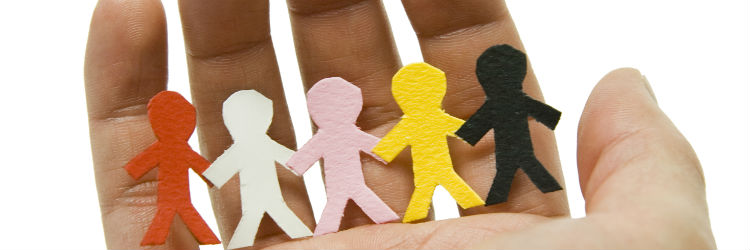The best kept secret to inner peace and happiness

The 21 September marks World Peace Day and to reflect on this, author of A Fearless Heart: Why Compassion is the Key to Greater Wellbeing, Thupten Jinpa, gives a brief description on the importance of compassion, and how we can exercise compassion to live a more peaceful, harmonious life.
These days several forces are converging that indicate that compassion’s time has come. As our world becomes smaller—with our population rapidly increasing against finite natural resources; environmental problems that affect us all; and the proximity of peoples, cultures, and religions brought about by technology, demographic changes, and a global economy—we are being urgently called to foster the spirit of coexistence and cooperation. We actually are in this together. This reality of the oneness of humankind is what compassion is all about. If, for example, the world’s believers collectively reaffirmed compassion as the foundation of their teachings, there would be a robust common ground on which millions of people could come together and finally respect each other.
Most of us would say we are compassionate, you may even think it is an important part of your identity. That said, most of us have these thoughts about compassion and leave it at that. Unless we work at compassion, unless we practice and change our habits and make it an active force in our lives, it will only be something that happens to us—we get angry when provoked, feel compassion when triggered—an automatic reaction to the pain and needs of our loved ones, or sometimes to strangers in acute distress. If we leave it at that, we fail to tap into the transformative power of compassion.
Receiving kindness
Can you think of someone in your own life who has been a figure of kindness for you, the mere recollection of whom fills you with joy and gratitude? It might be a teacher who gently nudged you along at school and helped you to recognize your personal strengths early on. It might be a loyal friend who lets you know she has your back. Or it could be your parents, who provided you with a powerful anchor as you grew up. If no memory of a specific person comes up immediately, leave the question open and sleep on it. Why is it that the kindness of others, especially when received at a critical point in our lives, has the power to leave such a deep imprint in our minds?
The simple answer is that such an act touches us at the deepest level of our humanity— where we are most human—with a powerfully felt need for kindness and connection.
Thupten Jinpa is a former monk and holds a Ph.D. from Cambridge University, where he also worked as a research fellow. Jinpa has been the principal English translator for His Holiness the Dalai Lama for over twenty-five years and has translated and edited numerous books by the Dalai Lama, including the New York Times bestseller Ethics for the New Millennium, Beyond Religion and Transforming the Mind. Jinpa is an adjunct professor at the Faculty of Religious Studies at McGill University, Montreal and Chairman of the Mind & Life Institute, which is dedicated to promoting collaboration between the sciences and contemplative knowledge, especially Buddhism. For more information visit http://ccare.stanford.edu/ or follow Jinpa on Twitter (@ThuptenJinpaLa).


